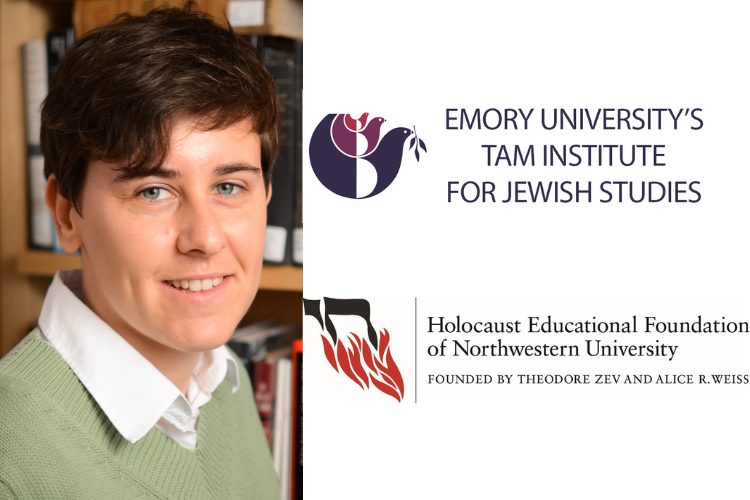Emory Hosts Conference on "Holocaust Memory in the Twenty-First Century"

From February 27-29, 2025, Emory University’s Tam Institute for Jewish Studies (TIJS) partnered with the Holocaust Educational Foundation of Northwestern University (HEFNU) to host a Regional Institute in Atlanta, GA, titled, “Holocaust Memory in the Twenty-First Century.” After years of participating in HEFNU conferences and workshops, Dr. Alicja Podbielska, Emory’s Visiting Assistant Professor of Holocaust and Antisemitism Studies, spearheaded the initiative by proposing the topic to HEFNU and TIJS’s respective directors. “The response was enthusiastic on both sides,” Podbielska notes, “driven by mutual recognition as leaders in the field of Holocaust studies and commitment to advancing scholarly dialogue.”
The Holocaust Educational Foundation was established in 1976 by survivors, their children, and their friends in order to preserve and promote awareness of the impact of the Holocaust on European Jews. Its mission is to advance Holocaust education at institutions of higher learning around the world.
“One of HEFNU’s recent initiatives is to support dialogue that investigates how the Holocaust informs our understanding of the world today,” shares HEFNU Assistant Director & Postdoctoral Fellow Dr. Tiarra Maznick. “The Holocaust resonates for people across the political spectrum and around the globe. In this vein, we engage scholars who approach study of the Holocaust from a variety of perspectives. Institute faculty demonstrated how Holocaust memory is shaped, utilized, or re-written in a number of European states—reflecting a variety of scholarly perspectives and critical engagements with various national memory cultures.”
This aligned with the Regional Institute hosted at Emory, which specifically explored the current state of Holocaust memory, focusing on its political uses, abuses, and distortions. Invoked for lessons on democracy and human rights, as well as weaponized to justify violence, Holocaust memory occupies a complex and fraught space, shaped by the fading of first-hand testimonies, digital technology, and ethnic nationalism. Various groups appropriate Holocaust memory to support their own narratives, leading to conflicts over how this history is commemorated and taught. And while memory scholars continuously complicate the notion of post-1945 successful reckoning with the past, Holocaust commemoration is often invoked as a model for coming to terms with other histories of racial discrimination, violence, and genocide.
Within this scope, Regional Institute sessions touched on a variety of groups and subjects, including, “African Americans, Civil Rights, and the Holocaust”; “Holocaust Remembrance and the Cult of WWII in Putin’s Russia”; “Elusive Relationships: Survivors and their Rescuers in the Aftermath of the Holocaust”; and “Holocaust Rescue and Politics of Memory in Poland,” among others.
“One of the key takeaways,” Podbielska reflects, “was the urgent need to address how Holocaust memory is shaped by contemporary politics. Sessions on post-communist memory distortions, the complexities of rescue narratives, and global perspectives on Holocaust education sparked important discussions. The Tenenbaum Lecture by Avinoam Patt underscored the evolving relationship between Israel and Holocaust remembrance, highlighting how these narratives continue to shift over time.”
In his presentation of TIJS’s annual Tenenbaum Lecture, which doubled as the keynote lecture for the HEFNU Regional Institute, Prof. Avinoam Patt of New York University addressed the topic: “Israel and the Holocaust: Changing Landscapes of Memory.” Tracing the State of Israel’s evolving and uneasy relationship to the memory of the Shoah, Patt analyzed shifting conceptions of Israeli self-understanding and identity, Israel’s relationship to the wider world, its neighbors, the Jewish Diaspora, and the Jewish past, before and after October 7.
Overall, the institute reinforced the importance of interdisciplinary and comparative approaches to Holocaust studies. Looking to the future, Podbielska shares her “hope to incorporate these insights into my teaching, particularly in courses that examine Holocaust memory through different media and cultural lenses. Additionally, the connections forged during the institute will be invaluable for future collaborations, whether through research projects or continued engagement with HEFNU’s broader network of scholars.”
Published 3/``19/25